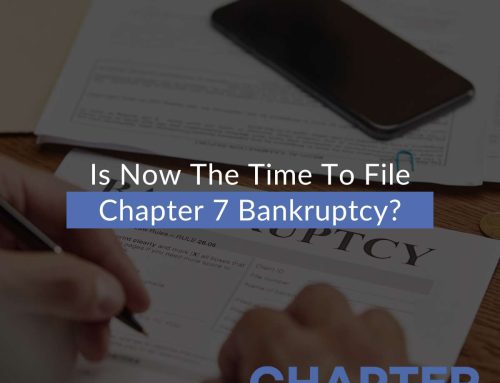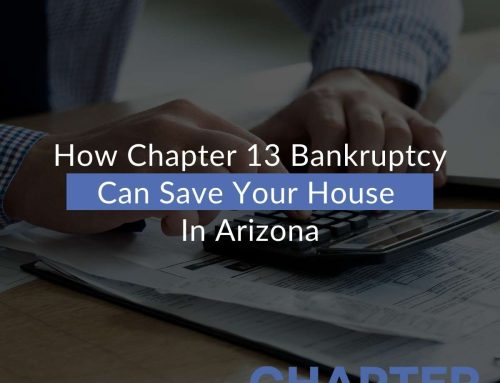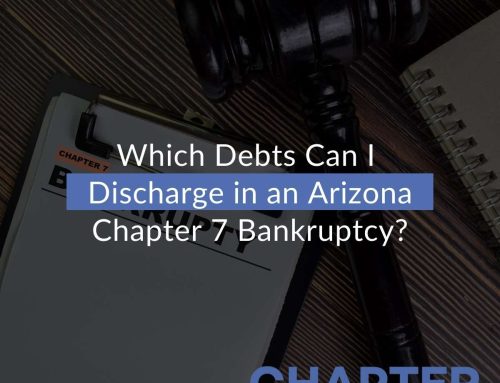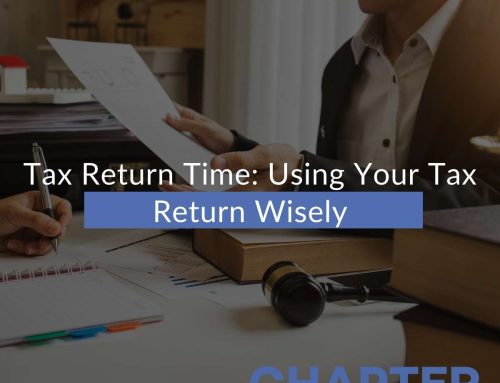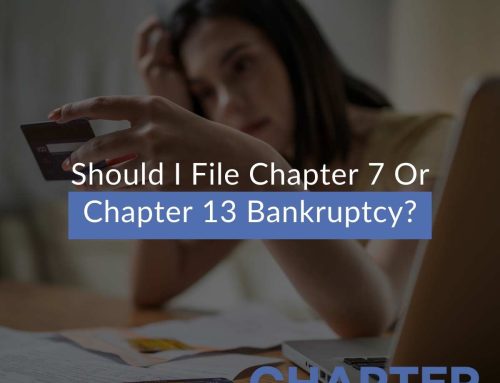Multiple Bankruptcy Filings: Understanding How Long You Will Be Disqualified From Filing Bankruptcy Again In Arizona
Bankruptcy is an effective method of debt relief, but it isn’t meant to be used frequently. After discharging your debts in bankruptcy, there are minimum time periods you must wait before filing bankruptcy again. Understanding how long you will be disqualified from filing again after your first filing might impact your decision on whether or not to file soon. For any additional questions about bankruptcy eligibility, contact our bankruptcy law offices for your free consultation.
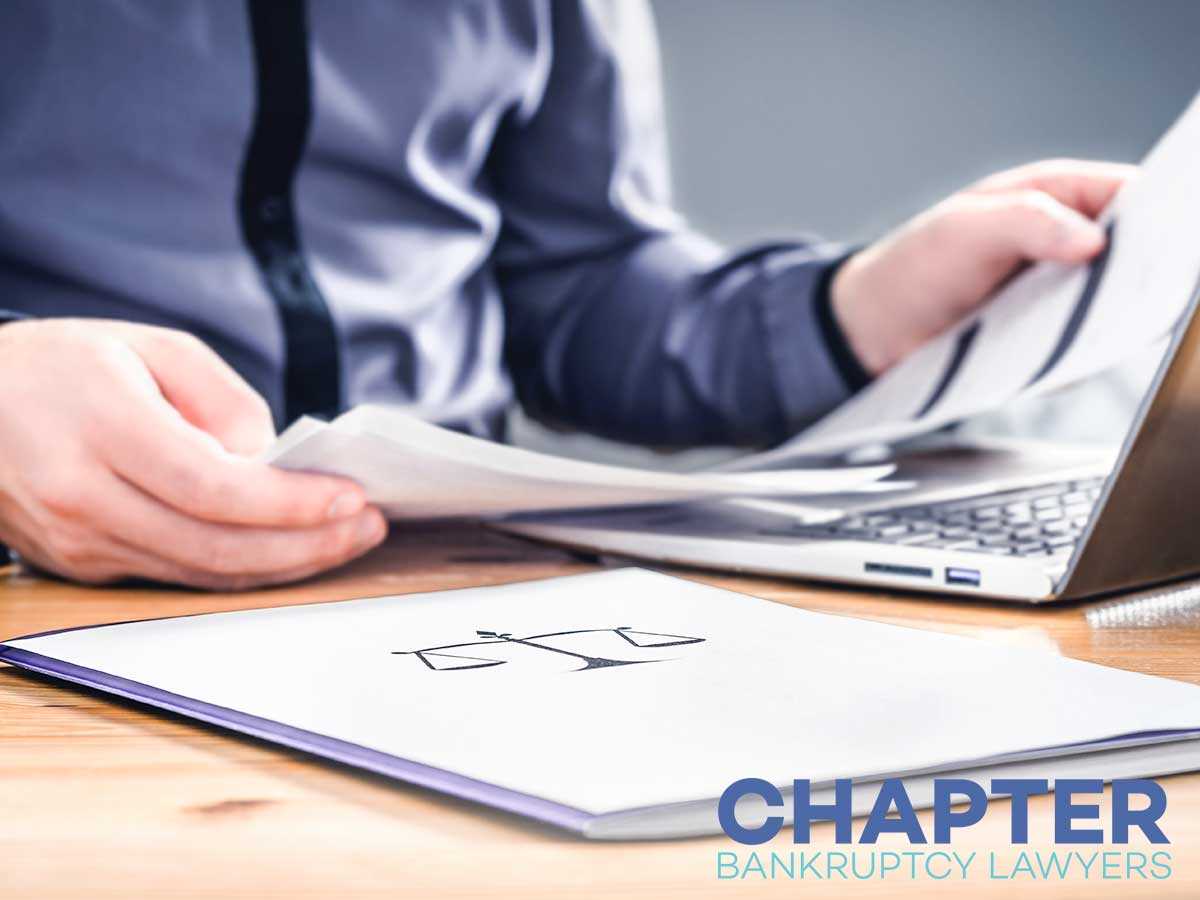
What Is Chapter 7 Bankruptcy?
Chapter 7 bankruptcy liquidates unsecured debts so that you are no longer legally obligated to pay them. Contrary to popular belief, you can still declare Chapter 7 if you have a job and property. There are, however, income restrictions and limitations on property equity known as “exemptions.” Chapter 7 bankruptcy is a relatively short process- it will typically take about 4-6 months from filing to discharge.
Chapter 7 and Chapter 13 have several requirements in common. Before filing your petition under either chapter, you must complete a credit counseling course. A trustee will be assigned to oversee your case, reviewing your petition and administering payments to your creditors. In most cases, your trustee will request additional documents to give your petition more context. You will need to attend a hearing known as a 341 Meeting of Creditors approximately 30-45 days after you file your petition. In both chapters, you will need to complete a second credit counseling course within 60 days of your 341 Meeting of Creditors. At this point, Chapter 7 filers wait for discharge while those who file Chapter 13 must continue with their payment plans.
What Is Chapter 13 Bankruptcy?
Chapter 13 bankruptcy is a form of consumer bankruptcy that organizes debts into a payment plan that lasts either 3 or 5 years. Chapter 13 is a good option for those whose income is too high for Chapter 7, or those who own assets that won’t be protected in Chapter 7. Debts are paid in order in four categories in the plan.
First are legal fees associated with your bankruptcy- trustee fees, attorney’s fees, etc. Next, secured debts are paid. The third category to be paid is priority debt. Unsecured debts are the last to be paid in Chapter 13 bankruptcy. Depending on your disposable monthly income and the amounts of each type of debt you have, your unsecured debts might be discharged with partial or minimal repayment in Chapter 13.
In addition to the requirements the chapters share, those who file Chapter 13 are required to attend a plan confirmation hearing. You may need to attend other hearings, such as a reaffirmation hearing, depending on the choices you select during your bankruptcy.
How Often Can You File For Bankruptcy?
There are various factors that will affect how often you can file for bankruptcy. One of these is the chapters of bankruptcy you file each time. Another is whether your previous case was discharged, or your case was dismissed or denied a discharge. You should also consider what outcome you expect to achieve from your second bankruptcy.
How Often Can You File a Chapter 7?
There is no limit to how many times you can file Chapter 7 bankruptcy– as long as you are at least 18 years old, have debt to discharge, and have waited the necessary time limits, you can file as many times in your lifetime as you would like.
How Frequently Can You File a Chapter 13 bankruptcy?
There is also no limit to how many times you can file Chapter 13 bankruptcy. However, be aware that if you file too many times, your case may be subject to an exploding stay. For frequent bankruptcy filers, the Automatic Stay only lasts 30 days, as opposed to the entire lifespan of your case.
Filing Under Different Bankruptcy Chapters, The Order Matters.
Just because you declare bankruptcy multiple times doesn’t mean that you need to declare the same chapter each time you file. You can file the same chapter twice in a row, or you can file Chapter 7 and Chapter 13 separately, in either order. You should note that waiting periods are different based on the order in which you file.
How Long Do I Have To Wait To File Bankruptcy?
- Filing Chapter 13 after Chapter 13: Because debts are repaid in Chapter 13, the waiting period between two Chapter 13 bankruptcies is the shortest of the consumer bankruptcy combinations. You must wait 2 years after your first Chapter 13 filing before filing another Chapter 13. Because a successful Chapter 13 bankruptcy lasts between 3 and 5 years, this 2 year time limit will rarely come into play.
- Filing Chapter 13 after Chapter 7: If you have previously discharged your debts in Chapter 7 bankruptcy, you must wait at least four years before filing Chapter 13.
- Filing Chapter 7 after Chapter 7: The waiting period between Chapter 7 bankruptcies is the longest of the consumer bankruptcy combinations. You must wait at least 8 years between Chapter 7 bankruptcies.
- Filing Chapter 7 after Chapter 13: You will need to wait 6 years from your most recent Chapter 13 filing date to file a Chapter 7. However, this may only be 1-3 years from when your debts were discharged in the Chapter 13.
Time Limits Apply To Debt Discharges, Not Filing Dates
Because most people file bankruptcy with the intention of discharging their debts, that is the context in which most of these questions are answered. However, you may still file a bankruptcy before your applicable waiting period has expired- you just won’t be entitled to a discharge. There are a few situations in which it might be useful to file bankruptcy even with the knowledge that your debts won’t be discharged.
Some debts won’t be cleared in bankruptcy, but a bankruptcy payment plan would still be preferable to a wage garnishment or other collection method your creditor will use if you can’t come to an alternative arrangement. For example, you discharge your unsecured debts in Chapter 7. However, you are left with some debts that aren’t dischargeable, like student loans, child support, and some taxes. Bankruptcy’s Automatic Stay generally doesn’t stop child support collection, but your other creditors are impatient after several months of no payments from you with the bankruptcy court protecting you. Your creditors want you to make payments higher than you can afford, and won’t agree to anything else. At this point, many creditors prefer to seek a wage garnishment as it is one of the most consistent ways to receive payments for a debt. Filing a Chapter 13 bankruptcy to force a 3-5 year payment plan for this debt could be preferable to a potentially crippling wage garnishment. This process, also referred to as a Chapter 20, can be extremely complicated. You should at least discuss this with a bankruptcy attorney before filing your petition.
Contact Our Experienced Arizona Chapter Bankruptcy Attorneys Today
Waiting periods between bankruptcy filings are just one of the several issues that could affect your filing eligibility. You should consult with a bankruptcy attorney before filing your petition, especially if you have declared bankruptcy in the past. This will help you ensure that you file under the right chapter, at the right time, and that any relevant issues are identified in your petition. This is necessary to achieve your desired results in a second bankruptcy filing.
To start strategizing your bankruptcy filing today, schedule your free consultation with one of our experienced bankruptcy lawyers. In addition to free consultations, our Arizona bankruptcy attorneys offer affordable rates and payment plans starting at $0 down. Contact us to learn more about filing BK for $0 Down.
Our dedicated, compassionate AZ debt relief attorneys will handle every aspect of your case so you can confidently move forward with a clean financial slate. Thus, for your free consultation, call today or use our online form to schedule.
get IN TOUCH
with an experienced Arizona bankruptcy attorney
Chapter Bankruptcy Lawyers
Mesa Office
3707 E Southern Ave
Mesa, AZ 85206
Phone: 480-405-1010
Email: [email protected]
Tempe Office
4500 S Lakeshore Dr #300
Tempe, AZ 85282
Phone: 480-562-6145
Email: [email protected]


